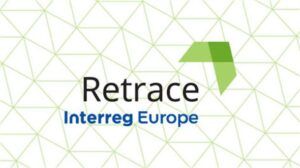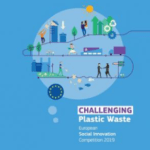The priority of the RETRACE project is to give a systemic approach to circular policy formulation within the Interreg Europe programme.
RETRACE aims to promote systemic design as a method that allows local and regional policies to move towards a circular economy when waste from one production process is incorporated into another, preventing waste from being released into the environment. Systemic change is required to achieve a transition to a Circular Economy. To achieve this, we need to begin to understand existing systems, their interactions and identify pathways for new connections that can support the transition, underpinned by an alternative approach to policy design. So, rather than asking ourselves what to do, we should know how to do it.
That is exactly what will be offered in this project, which allows participants to attend a synergistic event of knowledge and experience. The speakers will present alternative approaches to the design of policy pathways in Germany in terms of carbon neutrality and resource efficiency. They will also explain how the EU policy laboratory is innovating in European policy-making and which projects at EU level can contribute to the transition to a circular economy. The results, which will be presented by the Retrace project stakeholders, will confirm the success of the project’s learning process and that the actions have the potential to contribute to systemic change.
As the best way to learn is by practicing, the afternoon workshop will offer the option of participating in the design of solutions, which are generated at the intersection of social innovation and the paradigm of the Circular Economy.
What is the Systemic Design?
The Systemic Design approach, developed by the research group of the Department of Architecture and Design at Politecnico di Torino (Italy), seeks to create complex industrial systems. It aims to implement sustainable productive systems in which material and energy flows are designed so that output from one productive process becomes input to other processes, preventing waste from being released into the environment. RETRACE partners deem that the adoption of more systemic approaches at territory/regional level can play a leverage effect in such transition. The video provides a brief expalination of Systemic Design in Italian; more information can be found here.
Deadline
3rd of July 2019







Leave a Reply